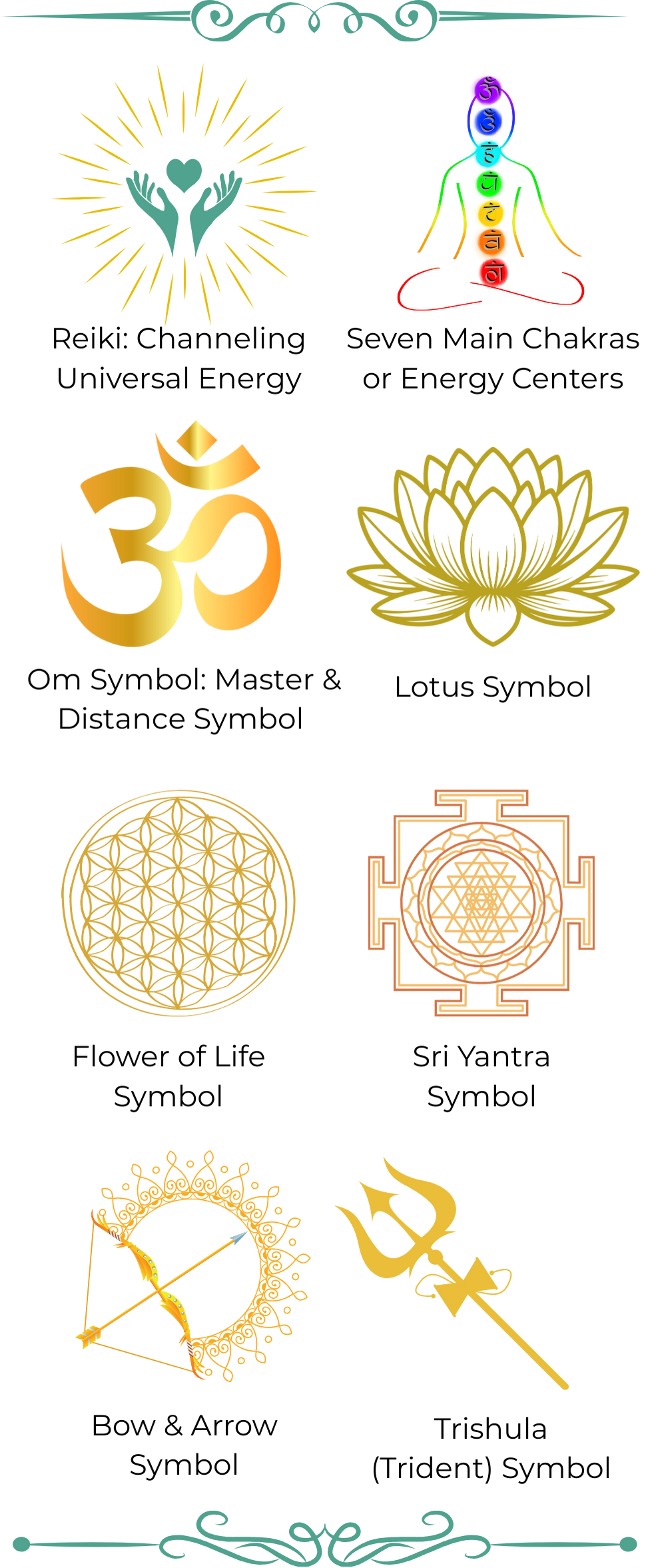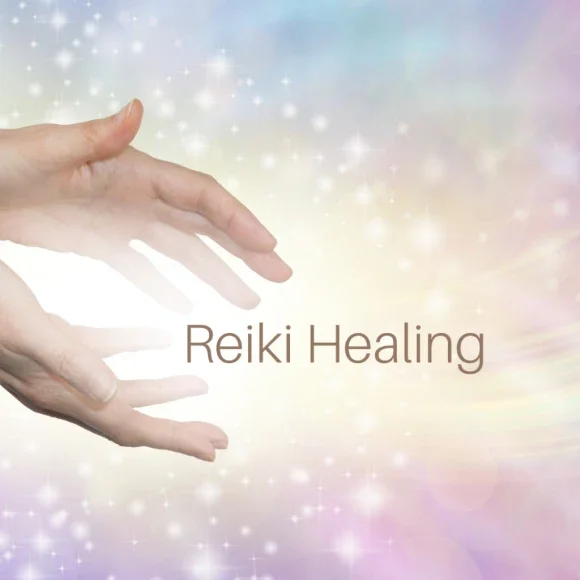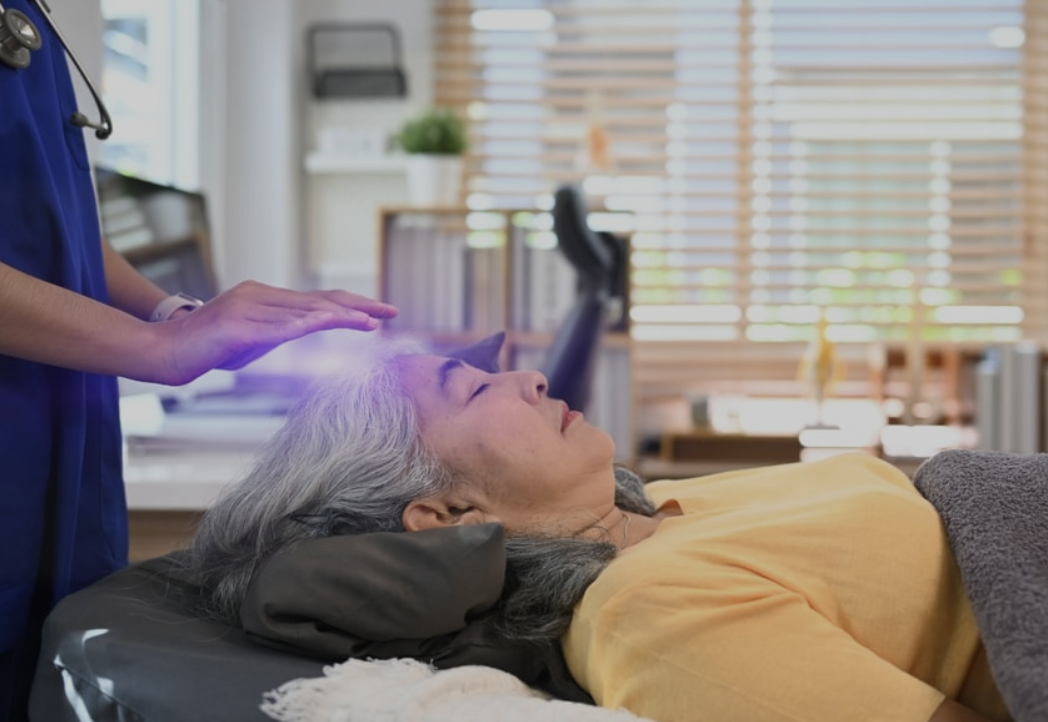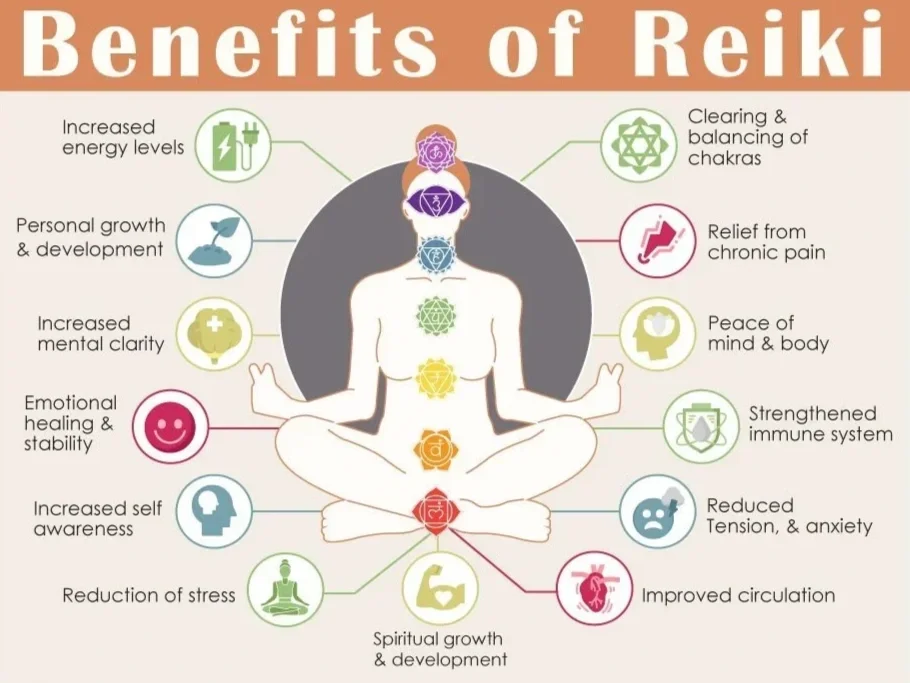what is Reiki Healing?
Reiki channels universal life force energy (Ki or Prana) to support your body, mind, and spirit. This energy flows beyond the usual bounds of time and space, able to nurture your present, gently touch the past, or inspire the future. Because of its boundless nature, Reiki can be experienced in person or at a distance, through Zoom or FaceTime, without diminishing its effect. Each session is attuned to your needs, helping ease tension, restore balance, and invite clarity, calm, and inner harmony.
I also draw on sacred forms like Rama’s bow and arrow, Kali’s sword, and Ganesha’s broken trunk—each carrying unique energetic resonance. These symbols enrich the practice, providing visual and energetic touchstones that help both practitioner and client connect more deeply to the flow of universal life energy during a session.
Through this lineage, Reiki becomes not only a healing modality but also a bridge between traditions, honoring both the original Japanese system and the timeless symbolic wisdom of India.
Reiki originated in early 20th-century Japan through the work of Mikao Usui, who rediscovered the ancient art of channeling universal life energy—Rei meaning “universal” and Ki meaning “life force.” Traditionally, Reiki is understood as a gentle, non-invasive practice that helps restore balance and vitality in body, mind, and spirit, supporting the body’s natural capacity to heal itself. My own Reiki journey deepened as I explored the intersections of this Japanese practice with Indian spiritual symbolism. Symbols such as Om, the Sri Yantra, the Swastik, the Lotus, the Flower of Life, and the Trishula became central guides and bridges for focus and intention.
Roots of Reiki Healing
Today, Reiki is practiced worldwide, in private sessions, wellness centers, and hospitals as a complementary approach to care. During a session, the practitioner lightly places their hands on or just above the body, fully clothed, creating a safe, non-invasive environment. The focus is on presence, intention, and allowing energy to flow freely, supporting the body’s natural healing and relaxation processes.
Clients often describe a Reiki session as deeply calming—sometimes feeling warmth, gentle tingling, or subtle shifts of energy. For others, it may simply feel like restful quiet, a pause from the stress of daily life.
Each experience is unique, shaped by the body’s needs and the practitioner’s intention.
Reiki’s adaptability is part of its strength: it can complement other wellness practices, provide support during medical recovery, or simply offer a quiet space for reflection and self-care. With its gentle, nurturing approach, Reiki is accessible to anyone seeking balance, regardless of experience, belief, or spiritual background.
Reiki in Modern practice
Western Scientific Perspectives
Reiki has garnered increasing attention in Western healthcare as a complementary therapy. Research suggests that Reiki may help reduce stress, ease anxiety, alleviate pain, and support overall well-being. Many individuals report experiencing deep relaxation and a sense of balance following Reiki sessions.
Several esteemed medical institutions have integrated Reiki into their patient care programs, highlighting its role in holistic wellness :
Johns Hopkins Medicine offers Reiki therapy as part of its Integrative Medicine and Digestive Center, aiming to provide holistic care that complements traditional medical treatments. Reiki practitioners at Johns Hopkins support the body’s natural healing processes by transmitting universal life energy to patients. Johns Hopkins Integrative Medicine
Mayo Clinic incorporates Reiki into its Integrative Medicine and Health department, addressing various aspects of patient well-being. The clinic’s integrative approach combines conventional Western medicine with evidence-based complementary treatments, including Reiki, to enhance patient care.
Mayo Clinic Integrative Medicine
This is sample list of all the hospitals that offer Reiki. Click here to see more.
UCLA Health provides Reiki therapy through its Integrative Therapy program, which is available to inpatients. This program includes Reiki as a non-pharmacological modality to create a healing environment and promote relaxation.
UCLA Health Integrative Therapy
Duke University Hospital offers Reiki through its Integrative Medicine program, helping patients manage pain, anxiety, and stress while complementing conventional treatments. Duke Integrative Medicine
Mount Sinai Health System integrates Reiki into its Mind-Body Medicine program, supporting patient recovery, stress reduction, and overall well-being.
Mount Sinai Integrative Medicine







